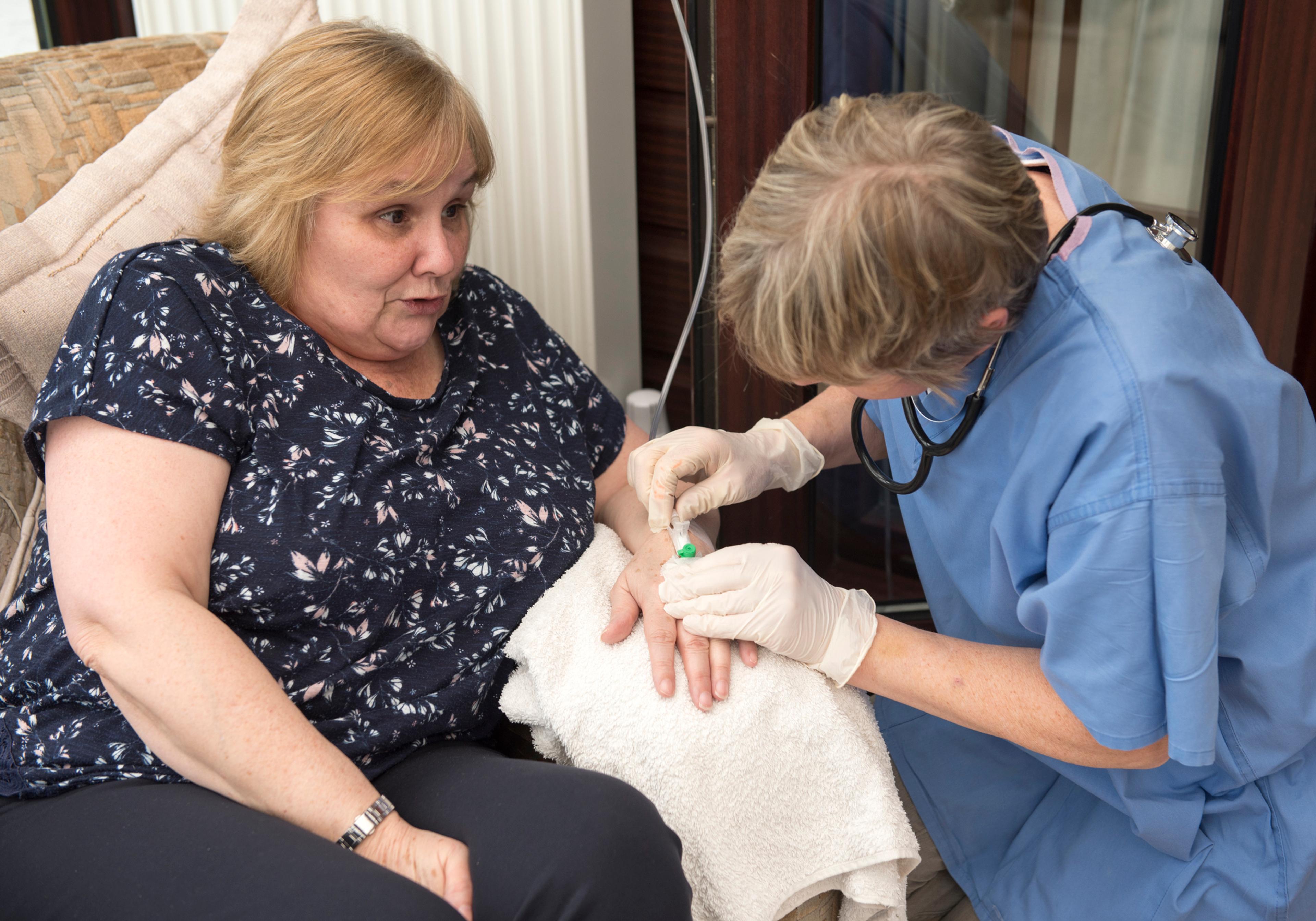Saving Blue Cross Members and Customers Money by Finding Convenient Ways to Receive Drug Infusions
Amy Barczy
| 4 min read
Amy Barczy is a former brand journalist who authored content at Blue Cross Blue Shield of Michigan. Prior to her time at Blue Cross from 2019-2024, she was a statewide news reporter for MLive.com. She has a decade of storytelling experience in local news media markets including Lansing, Grand Rapids, Holland, Ann Arbor and Port Huron.

For a busy mom, driving two hours to a hospital outpatient facility to receive infusion treatments for her chronic conditions left her wondering if there was a more convenient way to receive her medications.
Working with Blue Cross Blue Shield of Michigan, she was connected to a program that allowed her to receive her infusion treatments at home. Not only was she able to avoid the commute and spend more time with her children, but she also made a new friend in the home infusion nurse.
The member is one of thousands covered by Blue Cross that have been able to find more convenient, more affordable ways to receive their infusion treatments.
For certain types of chronic conditions, including rheumatoid arthritis, psoriasis, Crohn’s disease, ulcerative colitis and cancer, treatment involves medications that are given intravenously. These medications can be expensive and were historically primarily administered at hospital outpatient centers.
Blue Cross is working with members to receive their infusion therapies of certain medical drugs at locations that are more convenient for them – at home, at a doctor’s office or at a freestanding infusion center.
“Not only are these alternate sites of care easier to access, they also are a more affordable option: costs of infusion treatments are 30% to 50% less when they are administered at a site other than a hospital,” said Lisa Sivell, a director of medical benefit clinic management with Blue Cross’ Pharmacy team. “With fewer barriers to receiving more affordable treatment, members are more likely to follow through with their treatment plan.”
At a member’s home, infusions are administered by trained nurses that remain with the member for the duration of the treatment. This allows the nurses to become familiar with the member’s health care needs and regimen, as well as with the member’s doctors to ensure care is coordinated.
Additionally, receiving infusion treatments at home lowers a member’s risk for exposure to bacterial and viral infections. Medications and supplies are delivered directly to a member’s home. Nurses can also perform blood draws if any additional blood testing is needed.
The alternative site of care program has been available to Blue Cross members since 2015, and continues to expand to additional medications. Now there are almost 100infusion treatment medications available for members to receive in sites other than a hospital.
Members are seeing the benefits. For example, among members with Blue Care Network, nearly 77% of medication infusions for cancer treatment are administered at member’s homes, their doctor’s office or at a freestanding infusion center. The program has saved BCN $19.1 million on cancer treatments alone – which in turn saves members money.
“Many of the medications administered as infusions are among some of the most expensive drugs on the market. By targeting our program to reduce the cost of these infusion therapies, the overall cost of care goes down for us as well as for our members – both directly and indirectly,” said Atheer Kaddis, vice president of Pharmacy Services at Blue Cross. “Additionally, members receive the benefit of care that is more convenient and comfortable for them at a time when they need our utmost support to prioritize their health.”
Alternate site of care programs can help members of all ages. One member who recently benefitted was a middle school student – who routinely had to miss 3.5 hours of school to receive an infusion treatment at the hospital. Not only were the student and their family concerned about the student’s health, but they were also now concerned about the student’s grades. Working with their doctor and Blue Cross, the student and their family moved the infusion treatments to home.
The change was the flexibility the family needed. Not only could they choose the appointment time that was best for them, but the medication was also delivered to their door and the student was able to attend more of their scheduled classes.
Blue Cross and BCN members who receive infusion treatments should talk with their health care provider to see if there are alternative sites available for them to receive their medications.





